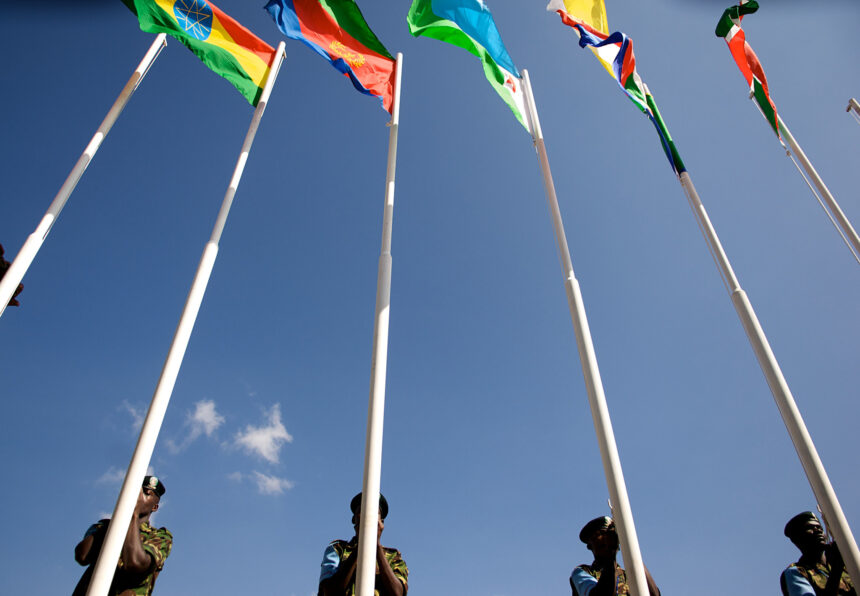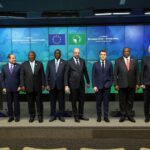Summary by Geopolist | Istanbul Center for Geopolitics:
The European Union (EU) has struggled to assert itself as a major geopolitical player in the Horn of Africa due to internal coordination challenges and shifting international dynamics. Internally, the EU lacks a coherent strategy for the region, relying instead on broad goals without clear priorities or strategic alignment among member states and EU institutions. This lack of cohesion is exacerbated by divergent foreign policy interests and the EU’s attempts to align with African Union initiatives, often without achieving effective results.
Externally, the EU faces competition from other global actors, including Middle Eastern countries like the UAE, Saudi Arabia, and Turkey, as well as Russia and China. These actors provide direct support to local governments and factions in the Horn, diminishing the EU’s leverage and ability to influence regional conflicts and governance issues.
To enhance its role, the EU must first develop a more focused strategy for the Horn, clarifying its interests and priorities while better coordinating its policy tools. Secondly, it should leverage its strengths in development cooperation and private sector engagement, potentially adjusting initiatives like the Global Gateway to better address the region’s complex crises. Finally, the EU should explore ways to influence the actions of other foreign powers in the Horn, using its economic and diplomatic leverage to promote stability and sustainable development.
Overall, addressing these challenges is crucial for the EU to effectively contribute to peace, stability, and development in the Horn of Africa while defending its own strategic interests in the region. Read the full article below.
Over the past years, the European Union (EU) has struggled to play a major role as a geopolitical actor in the Horn of Africa. As conflicts rage across the region and tensions brew, the EU has failed to achieve its purported goals of promoting peace, stability, and inclusive, sustainable economic development in the region. Why is that the case? To find an answer, one has to look both at the EU’s internal coordination challenges and at changing international dynamics at large, most notably the growing engagement of other foreign actors in the Horn.
Internal dynamics: a vague strategy and lack of cohesion
As far as the EU’s own coordination issues are concerned, the lack of a clear strategy on the Horn stands out as a major limitation of the bloc’s approach to the region. The most recent publicly available document guiding the EU’s approach is the May 2021 Council Conclusions titled “The Horn of Africa: a geo-strategic priority for the EU”. This lists a number of different domains in which the EU is interested and engaged, including “peace and security, democracy, human rights, rule of law, gender equality, sustainable development, economic growth, climate action and regional cooperation”. However, this resembles more a list of desirable outcomes, rather than a strategy, and it lacks a clear articulation of what is actually at stake for the EU in the region (i.e. its interests), what its priorities are, and how the bloc can use the tools at its disposal (e.g. diplomatic engagement, humanitarian and development aid, security cooperation, trade and investment, etc.) to pursue these priorities.
In addition, a number of other internal coordination issues further hamper the bloc’s approach. Firstly, the EU often faces difficulties in reconciling the interests and approaches of individual member states and EU institutions. During the war in Ethiopia’s Tigray region, for instance, the harder line taken by the EU’s High Representative for Foreign Affairs, Josep Borrell, markedly differed from the more conciliatory approach taken by some major member states, including Italy.1 Similarly, in Sudan, in the months preceding the outbreak of the current war, some member states privately reported concern over the position of France, which they saw as excessively cosying up to the leadership of the Rapid Support Forces.2 Secondly, tensions between different foreign policy priorities can also hamper the EU’s approach to crises in the region. For instance, Brussels’ desire to strengthen its continental partnership with the African Union (AU) has led it to support the AU’s initiatives in the Horn, even in cases where such initiatives have been controversial or ineffective. Examples of this tendency include Ethiopia, where the AU was seen as too close to the federal government to be an effective mediator in the Tigray conflict, as well as more recently in Sudan, where the AU (along with several other actors) has so far failed to deliver a positive contribution to the country’s civil war. Third, failure to coordinate the EU’s various policy tools also hinders the implementation of the bloc’s strategy. In Ethiopia, for instance, the EU repeatedly declared support for accountability for the atrocities committed during the 2020-2022 war. However, at a time when the Ethiopian government was trying to shut down a UN probe into these atrocities, the EU not only failed to use its diplomatic leverage within the UN to block this move, but it also implicitly rewarded the government by pledging a large aid package to Ethiopia, its first one since the end of the war.
External dynamics: more players, less leverage
The growing engagement of other foreign actors in the Horn is also playing a role in weakening the bloc’s approach. Over the past decades, several Middle Eastern countries – including oil-rich Arab Gulf monarchies, most notably the United Arab Emirates (UAE), Saudi Arabia, and to a lesser extent Qatar, as well as Turkey – have gradually (re)strengthened their influence in the Horn. In particular, the UAE has recently emerged as a major foreign supporter for several actors within the region, most notably Abiy Ahmed’s federal government in Ethiopia and the Rapid Support Forces in Sudan, while also playing a significant role in Somalia. On the other hand, Turkey’s engagement has been particularly strong not only in Somalia (especially in Mogadishu), but also in Ethiopia and to a lesser extent in Sudan. After some years of relative absence, Iran has also re-joined the fray, providing drones to the Sudanese Armed Forces. In addition, faraway global powers are also engaged in the region – particularly Russia, which has maintained ties with both warring parties in Sudan.
What are the implications of this trend for Brussels? Most notably, the growing role of other foreign actors tends to dilute the influence of Western countries, including the EU.3 Faced with an ever wider array of potential foreign supporters, local actors are able to insulate themselves from pressure by any single partner, as they can always resort to an alternative backer. This was evident during Ethiopia’s war in the Tigray region, when drone deliveries from the UAE, Turkey, and Iran, coupled with diplomatic backing at the United Nations by Russia and China, insulated the Ethiopian government from pressure by the EU and the United States regarding human rights violations. Similarly, Sudan’s warring parties have relied on support from the UAE and Egypt to sustain the fighting, thus frustrating efforts by multiple other actors (including the EU, which enjoys only limited direct influence over the warring parties) to halt the fighting. Increased leverage for actors in the Horn is not a negative development per se – on the contrary, it can be beneficial, if existing power brokers use this leverage in the interest of the country at large. Yet, if this leverage is used to fuel local conflicts, it is bound to have a negative impact on the Horn, and also on the EU’s engagement in the region.
The way ahead
If the EU wants to play a stronger geopolitical role in the Horn, defending its own interests while also contributing to peace, stability, and sustainable, inclusive development, three main shifts are needed.
Firstly, the bloc should define a clearer strategy for the region, spelling out more plainly its interests (i.e. why the Horn is important to the EU), its priority goals (i.e. what does the EU want to achieve in the region), and how it plans to achieve these goals by mobilising the tools available to it (e.g. diplomacy, aid, trade and investment, security support, etc.) in a coordinated way. This would likely be a fraught process, not least due to internal divergences in the interests of members states and EU institutions, but it would go a long way to sharpen the bloc’s engagement in the region.
Secondly, to maximise the benefits of its engagement in an increasingly competitive landscape, the EU should focus on areas where it enjoys a comparative advantage over other actors, such as development cooperation and private sector engagement. To this end, the EU may need to adjust its Global Gateway initiative to make it more suitable for the Horn’s multiple crisis contexts, where private engagement is unlikely to materialise without a strong public backing. The EU should reflect on how this and other initiatives can be better mobilised in support of the goals defined in its strategy and adjust their design and implementation accordingly.
Finally, the EU should explore whether and how it can influence the engagement of other foreign powers in the Horn. In Sudan’s case, for instance, the EU holds a degree of leverage over both the UAE and Egypt, the two main foreign backers of the Sudanese warring parties. For instance, the EU may signal to the UAE that its reputation as an international business hub hinges on more serious efforts to crack down on illicit business activities that fund conflict, such as gold smuggling in Sudan.4 In Egypt’s case, Cairo is heavily reliant on financial support by both the EU and international financial institutions where EU member states enjoy a degree of influence, such as the International Monetary Fund. This influence may be used to nudge Egypt towards a more constructive role in the Sudanese crisis.5
By: Guido Lanfranchi
1 Multiple conversations with European and Ethiopian diplomats; The Hague, Addis Ababa; 2022-2024.
2 Conversation with senior European diplomat; phone call; 2022.
3 This increase in leverage for local power brokers is not a negative development per se – on the contrary, it could provide benefits for countries in the Horn if it is used to promote the interests of the population at large. Yet, very often ruling elites instrumentalise this leverage to their own political interest, rather than for the country’s. See: Lanfranchi, G. 2021. “Geopolitics meets local politics in the Horn of Africa”, Clingendael Spectator.
4 For instance, the UAE has strongly lobbied for its removal from the grey list of the Financial Action Task Force (FATF). The UAE was eventually removed from the list in February 2024, but the UAE’s persisting role in enabling illicit activities warrants continued scrutiny. The EU and its member states may push in this direction.
5 The recent influx of foreign currency support to Egypt (from the UAE, the IMF, as well as the EU itself), makes it arguably more difficult now to exert this type of pressure.
Source: ISPI







